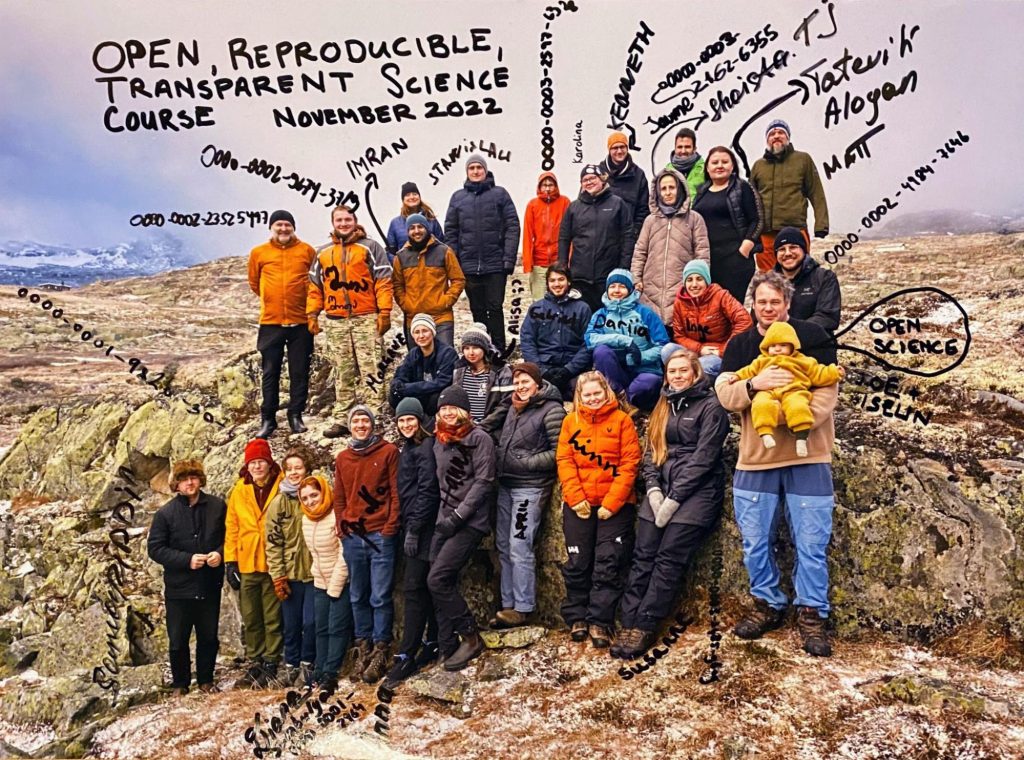Open, Reproducible, and Transparent Science Course
In November, we held a course on Open, Reproducible, and Transparent Science in Ecology at the Biological Research Station at Finse. The course was a collaboration between bioCEED (University of Bergen), GBIF Norway and Living Norway with teachers from NINA, NTNU, UiO and UiB. The course was aimed for PhD students and offered hands-on training, skills and knowledge on Open Science, data collection, data handling, data standards, data repositories and publishing, reproducible workflows and best practice in data analysis.
On Monday, 14th of November a group of students and teachers made their way slowly up the mountain to Finse. The students were an international group from Scandinavia (Norway, Sweden, Denmark), Spain, Eastern Europe (Ukraine, Belarus, Georgia), and even from Asia (Armenia, India, Tajikistan). It was unusually warm for the season, and there was no snow, which was lucky for those who were not prepared for the alpine environment.
While the temperature was dropping and the wind was howling, the students were wrangling data, writing code, and executing functions. They recorded frozen species and made their own data collection to understand the importance of also recording metadata (the data around the data). They learned why reproducible workflows, using tools such as quarto, git/GitHub and targets can benefit your future self, increase collaboration and make your research more robust. And finally, they learned about GBIF, Darwin Core data standards and what it takes to meet the FAIR data standards.
Five days later, loaded with a toolbox full of new skills the students made their way slowly down the mountain. They were happy and tired and showed a strong motivation to apply the new skills and knowledge in their own work and spread the word about Open Science among their colleagues and supervisors.






